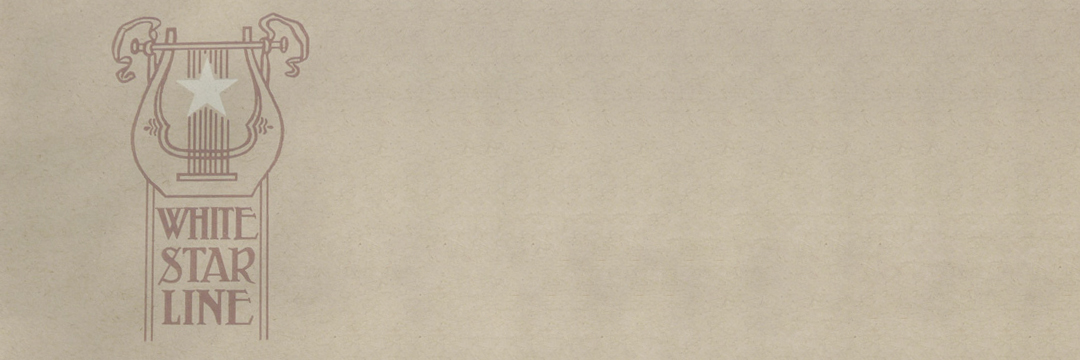Titanic‘s bandsmen would have just returned to their berths from their regular Sunday night performances. Perhaps they were counting and dividing tips, filing away their sheet music, preparing for bed. At the stern of the ship on the starboard side of E Deck the members of the quintet would have felt and heard the impact with the iceberg more in their cabin than did the trio in theirs, which was further forward and amidships. All eight men would certainly have noticed when the engines stopped.
Then it is believed that Captain Smith himself paid a visit to the musicians after his assessment of the ship. Survivor Pierre Marechal was of the understanding that the captain ordered the band to play, and related such information to Secretary Williams of the Amalgamated Musicians’ Union, who wrote, “Marechal declared that the musicians received an order to play all the time without stopping, so as to avoid a panic.”
In fact the Captain had no authority to command them to play. In the early part of 1912 music agents C. W. & F. N. Black had negotiated with shipping lines to direct all music matters on board every seagoing vessel. After a complaint from the Amalgamated Musicians’ Union just one month prior to Titanic‘s maiden voyage, in March, 1912, J. Bruce Ismay went so far as to remove the musicians from the ship’s articles. Titanic‘s musicians were employees of C. W. & F. N. Black and officially sailed as Second Class passengers. But the time when a captain had had command over them was still fresh in their memories, perhaps so fresh that a command was given, whether it came from a place of authority or not.
Whether the Captain or another officer met with the band, or commanded or not, it seems the idea to play must have come from the bridge. Without speaking with someone who was aware of the situation the bandsmen might have wondered about the scraping sound and then gone straight to bed. So, it is likely that a conversation did take place. It would have been mentioned that there was a situation that might cause angst amongst passengers, and that passengers would likely gather to see how it would unfold. It would have been concluded that a little night music would help maintain calm through the present circumstance.
The eight men pulled on their regular uniforms with green lapels, White Star Line buttons and caps, and prepared to go back to work. Soon after his meeting with the band, Captain Smith was seen in a nearby companionway by Violet Jessop, First Class stewardess.

First Class Stewardess
Violet Jessop, memoires published 1997:
“…I passed a group of officers [Captain Smith, Bruce Ismay, Purser McElroy and Doctor O’Laughlin], still in their mess jackets, hands in pockets, chatting quietly on the companion square as men do who are waiting for something. They smiled at me and I waved back.”
Their nonchalant behaviour indicated that at that moment none of the officers took the situation seriously (they had all just turned to take notice of the attractive stewardess). By asking the band to play Captain Smith could not have known that he was asking them to choose music and duty over life.
It seems as though Captain Smith didn’t need to convince the musicians to play. It was said that bandleader Hartley had once discussed the possibility of shipwreck with Lewis Cross, his fellow bandsman on Celtic. At that time Hartley had said, “Well, I don’t suppose it will ever happen, but you know music is a bigger weapon than a gun in a big emergency, and I think that a band could do more to calm passengers than all the officers.”
Violet turned from her sighting of the officers and bumped into the bandsmen. She was most familiar with John Law (Jock) Hume, as they had sailed together on Olympic’s maiden voyage only the year prior, in 1911.
Violet Jessop, First Class Stewardess, memoires published 1997:
“…I ran into Jock, the bandleader and his crowd with their instruments. ‘Funny, they must be going to play,’ thought I, and at this late hour! Jock smiled in passing, looking rather pale for him, remarking, ‘Just going to give them a tune to cheer things up a bit,’ and passed on. Presently the strains of the band reached me faintly as I stood on deck….”
It is believed that Jock Hume’s string trio struck up in the Restaurant’s Reception Room at approximately 12:15am, in the early morning hours of Monday, April 15, 1912. Little did they know that their performance would go down in history, perhaps as the most talked-about of the Twentieth Century.
Related Posts
- April 14, 1912: Sunday’s music on board Titanic
- Where did Titanic’s band play during the sinking?
- Was Titanic’s last performance impacted by separate libraries?



Rebecca, Please Post something about the band playing from 12:15 – 2:18ish include songs please!
LikeLike
I'm so glad you can't wait for my next entry! The interesting thing about this kind of blogging is that it is highly detailed and Titanic's loyal following has so much knowledge that I have to take time to make sure all my ducks are in a row before I post. That is the topic I'm working on, and hope it is up within a day or two.
LikeLike
Thank you so much!!!
LikeLike